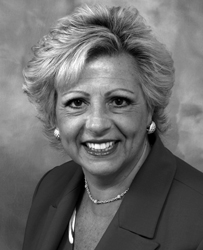Enough? For those whose intended careers require more than a bachelor’s degree, the University has a wide range of graduate programs for students to choose from.
According to Dr. Datta Naik, Vice Provost and Dean of the Graduate School, there were a total of 1781 graduate students, 18 master’s degree programs, one doctoral degree, 13 Graduate Certificates and 10 Post-Master’s Certificates at the University as of Fall 2012.
The University has graduate programs in six academic schools including the Leon Hess Business School, the School of Education, the Wayne D. McMurray School of Humanities and Social Sciences, the Marjorie K. Unterberg School of Nursing and Health Studies, the School of Science, and the School of Social Work according to monmouth. edu. Most classes are held in the evenings and are offered year round.
Five of the graduate programs have accreditations from various organizations such as the Commission on Collegiate Nursing Education and the International Coalition for Addiction Studies Education.
Dr. Stanton Green, Dean of the McMurray School of Humanities and Social Sciences, said that humanities and social science programs account for half of the University’s graduate students and these programs continue to grow. “The program in psychological counseling continues to grow and it is to some extent up to the University to decide how big it wants it to get – it currently stands at around 300,” said Green.
“The Criminal Justice Program is both growing and changing as this field morphs into the field of homeland security,” Green continued. The homeland security graduate program will be available in Fall 2013.
Graduate work differs greatly from work students do as undergraduates. Dr. Catherine Duckett, Associate Dean of the School of Science explained, “As an undergraduate you often repeat work that others have done.”
“As a graduate student you perform your own investigation or design your own software; something that was previously not done. Therefore in addition to better understanding how science in your field is done and what new discoveries have been made recently, you, as a graduate student create some new knowledge,” Duckett said.
Green agreed, explaining that undergraduate programs explore the bases of a field whereas a graduate program will make students experts in those fields by teaching them to use their further developed skills as the basis for a career.
The chances of finding a good career after college with a graduate degree are much higher according to Naik. “Those students who successfully complete their graduate education at Monmouth are able to find employment in a timely manner subject to economic conditions,” said Naik.
“Nationally, literature shows that students with their master’s have a better chance of securing employment than bachelor’s degree holders.” He added that career opportunities are broader to those with graduate degrees.
Different fields also consider different degrees as criteria to move up in position. “A master’s is a professional degree in Anthropology, which with experience such as internships often opens up the possibility for supervisory positions,” said Green.
The graduate programs at the University are flexible as well for students with different goals. Naik explained that some of the adult part-time graduate students already have jobs and are trying to improve their positions or change careers. Some students, however, go full-time to pursue specific career goals.
The work options for International students are different, however. “International graduate students are full time students who cannot work outside Monmouth campus but their objective is the same as other students– to prepare for a career in the field of their graduate studies,” said Naik.
If graduate school seems like a financial impossibility for some students, becoming a Graduate Assistant at the University may offer some aid. To qualify, graduate students must have a semester or more of graduate school under their belt and have a GPA of at least 3.0. A Graduate Assistant position can offer assistantship for up to nine credits a semester as well as 15 percent to cover Social Security and mandatory tax contributions. The amount awarded is based on how many hours worked as a Graduate Assistant.
The University offers a unique educational experience. “Our classes are small, the faculty and administrators provide personal attention and care to the students, and the faculty are teacher-scholars who are highly qualified in their disciplines,” said Naik.
“In professional programs the classes are taught by faculty with real world professional and clinical experience,” Naik said.
Students interested in applying to one of the University’s graduate programs can find the application and admission information on the University’s website monmouth.edu/admission/graduate.



